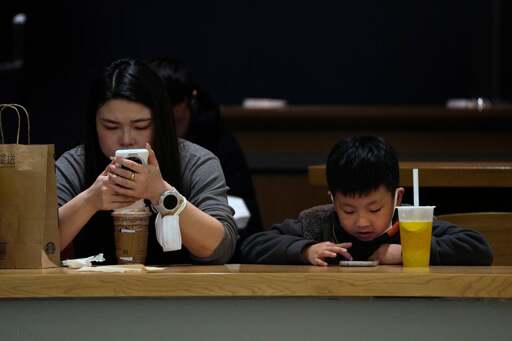China’s internet regulator on Monday launched a sweeping two-month crackdown targeting “malicious” social media content, including pessimistic economic commentary and posts promoting “negative outlooks on life,” as concerns mount over widespread youth disillusionment amid the country’s economic struggles.
The Cyberspace Administration of China announced the nationwide campaign will target content deemed to incite “violent or hostile sentiment,” including posts that spread claims like “hard work is useless” or “studying is useless”. The initiative comes as China faces record youth unemployment of 18.9% in August 2025 and persistent economic headwinds.
It’s a trend that’s spilling over into the West, too.
Negativity is bad for business, so everyone is being conditioned to be as fake-positive as possible.
Insane how a handful of people can completely enslave the entire human species.
1 in 5 young adults is unemployed and the official strategy is 🤫
This really feels like their go-to solution in the past decade or so. Silence whatever they think is the problem and then maybe try to fix it later (sometimes by “fixing” the wrong thing). Tbf this seems to the goal of a lot of states now, unfortunately.
This strategy is absolutely unviable in the West.
Instead, the dumbest idiots with a useful narrative are given massive megaphones and drown out everyone else.
Say what you want, but looks like a pick your poison kind of situation to me…
Yeah I feel when shit will go down in China it’ll be huge not only domestically but internationally and we’re not ready for that. Thats the problem with centralized systems even if you ignore the issues with authoritarianism that there’s no hedging and organic oposition for self correction so you get these massive breaks like the cultural revolution and the Chinese learned absolutely nothing it seems.
Also, if any other country upsets it’s citizens you have a couple tens of thousand people riled up, millions max. If China does it, it’s going to be a quarter of humanity.
Maybe they could employ them to come to Lemmy and argue about how great China is? SOLAR PANELS AND…and… dang it.
High-speed rail.
“There is no war in Ba Sing Se”
You sure? What’s that giant drill outside the walls?
Must’ve been the wind 🤷
Here’s a conspiracy theory for them: June 4, 1989
Absolutely nothing happened on June 4, 1989.
It was just an ordinary day.
In fact, it was so utterly banal, that we go out of our way not to talk about it because there’s absolutely nothing to say.
Whenever I work with Chinese nationals I like to schedule meetings for that day
How do you schedule meetings for dates in the past?
Skills
There is no war in Ba Sing Se.
China is when Chinese people do things Americans have been doing.
NSA, Equation Group, black rooms, PRISM, Palantir… that’s bad stuff but it’s sorta in the background. Even the national surveillance startup tracking license plates and soon people… not that interesting.
But Chinese that stuff? It’s the only way you can show many Americans just how fucked these policies / institutions are.
Nah China is another level entirely. During covid people were litterally locked in their homes and screamed through their windows for hours at a time while drones were flying around telling everyone to shut up. The rest of the world still has a lot of work to do.
Damn, you believe that shit? LOL
I do.
China doesn’t allow freedom of speech or freedom of the press, so anything negative about them is true until proven false.
You need an adult find you a video?
Yes please. I’ll wait.
literally first google result: https://www.npr.org/2022/04/30/1095504456/shanghai-china-covid-lockdown
Enjoy
That’s harrowing.
Collective stupidity has to reach unimaginable depths in order for this to ever be deemed acceptable.
Coming to you in the US in 2026 and EU in 2027!
Currently in development in México, final date TBA
Problematic content specifically targeted includes posts inciting fan group clashes
That what now?
kagis
https://www.brookings.edu/articles/why-china-is-cracking-down-on-its-online-fandom-obsessed-youth/
Fandoms and their capacity for collective action were also one of the largely untold stories of China’s fight against the COVID-19 epidemic in its early stage. In January 2020, as it became clear that an epidemic had emerged in Wuhan and surrounding areas, the government response was far too slow in many key areas, including the provision of protective equipment. By contrast, the networks already formed within fandom culture—the same that allowed mobilization in support of chosen idols—enabled the rapid marshalling of resources. On Jan. 21, 2020, one day after China confirmed human transmission of COVID-19, the fan network of Zhu Yilong, a young actor originally from the city of Wuhan, mobilized funds to purchase more than 200,000 protective masks. These and other supplies were delivered to Wuhan within 24 hours, offering much-needed support for medical personnel and others on the front lines. The aid offered by the Zhu Yilong network is just one of many examples of how online groups provided a crucial means of support amid a rapidly unfolding crisis.
Perhaps more worrying for the CCP has been their potential for mobilization on a global scale. Within 10 days of China’s formal acknowledgement of the coronavirus outbreak in January 2020, a group of 27 fandoms from mainland China, Hong Kong, and Taiwan known as the “666 Alliance,” had sourced nearly half a million-yuan worth of medical supplies for use in Wuhan. As one Chinese scholar wrote of fandoms in 2020: “They are a huge population, are well-organized, and have a clear division of labor, giving them an explosive power many would find astonishing.”
Oh, for Pete’s sake.
“Here, have a nice state-approved idol to be a fan of.”
kagis
Searches on Kagi, a la “googles” -> search on Google.
Ah ok. I’m more into ducking myself 🤷
So boring conspiracy theories are still allowed?
I swear my coffee shop purposely gives smaller than average straws for their takeout drinks because they want you to buy their thermos. #TrueConspiracy








